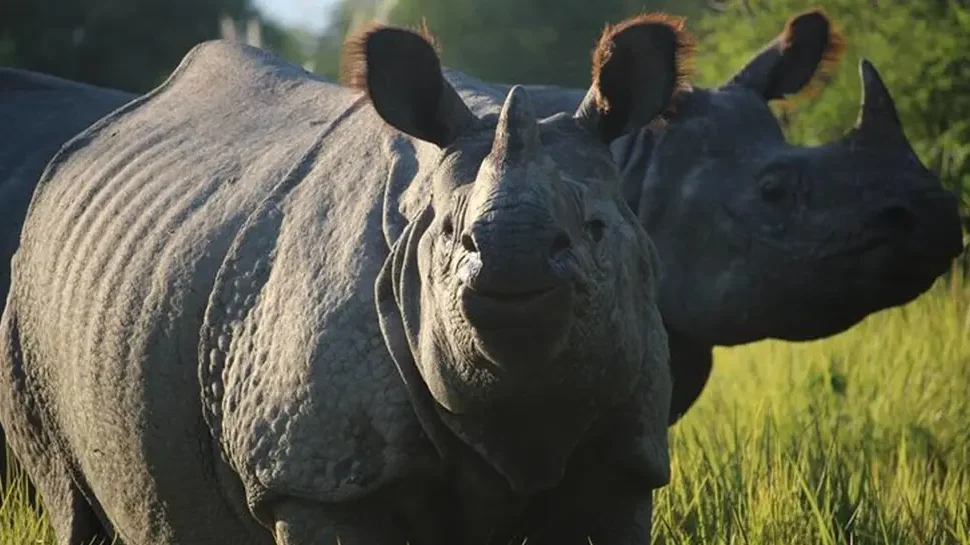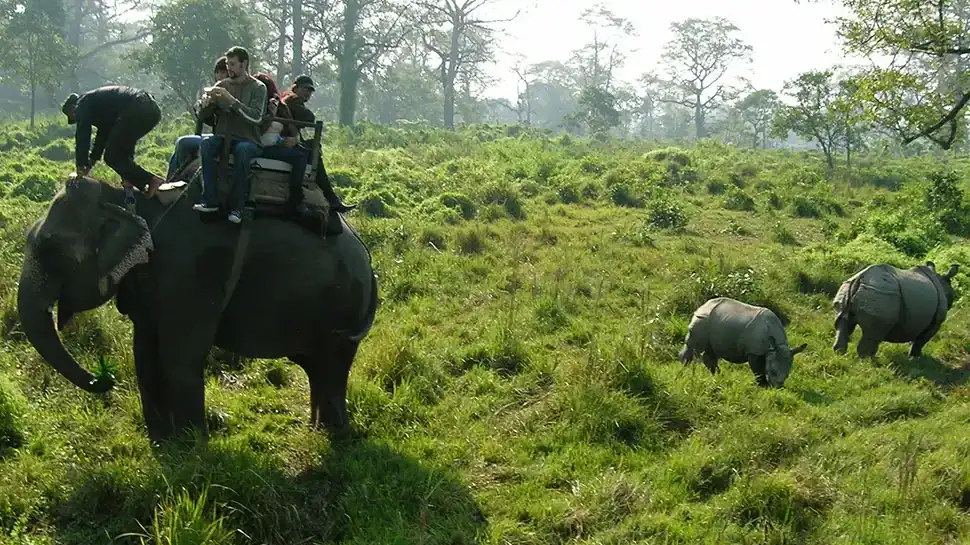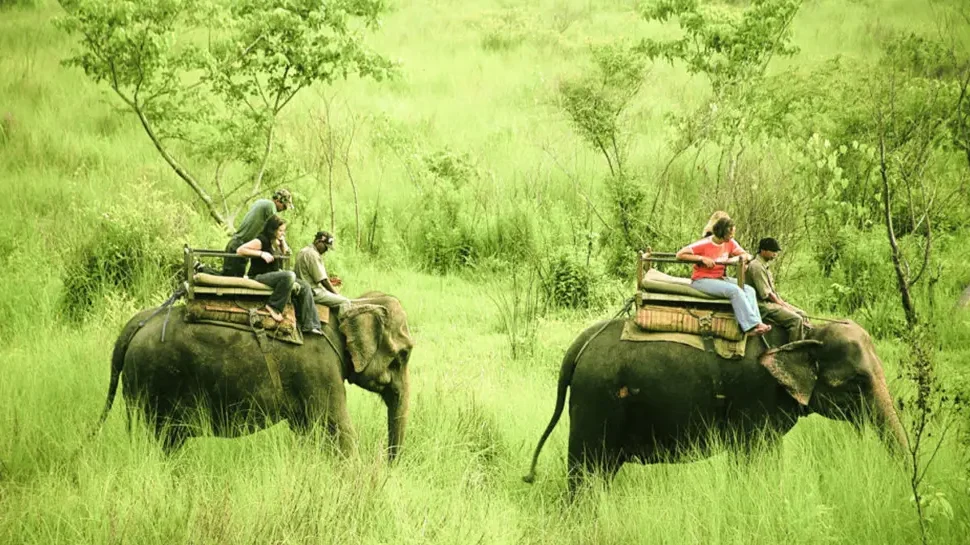Table of Contents
Chitwan Jungle Safari In July, the monsoons began throughout Chitwan, transforming the national park into a paradise. A July Chitwan Jungle Safari is an entirely different experience than during the dry season; with rivers swollen and trees covered in lush green vines, the rainfall is very heavy, and the landscape and activities during the safari have a lot to do with the abundance of water. Although July is not the ideal time to see wildlife, the month is a special time to be able to see the jungle at its most dramatic and colorful healthy time.
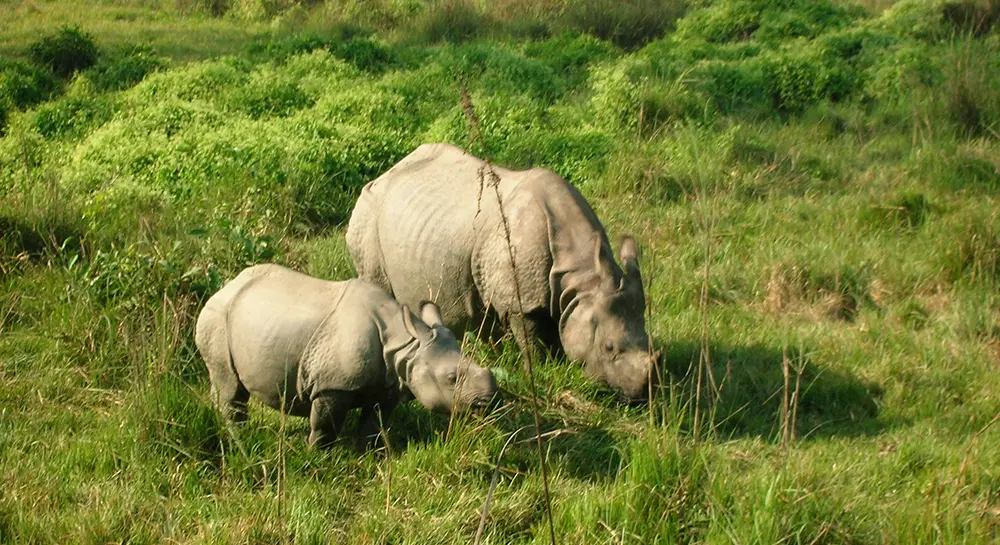
The green trees, swampy fields, and vibrant rivers develop a favourable and dramatic style that attracts nature enthusiasts with a calmer and off-the-beaten-track trip. The number of tourists is lower, allowing visitors to have a more intimate experience and feel relaxed due to the absence of crowds. It is also possible to go canoeing, take early morning safaris and walk in the jungles with rain breaks providing visibility of animals, birds, and monsoon-dipped vistas.
Travelers interested in cultural immersion can visit local Tharu villages, where life continues during the monsoon season, providing tours with insights into how societies adapt to these conditions. In general, July is the best option, when calmness, green landscapes, and the taste of the April monsoon season could be enjoyed in the place in Chitwan National Park.
Weather & Climate: Chitwan Jungle Safari in July
July is rainy and filled with high amounts of humidity as far as weather conditions are concerned during a Chitwan Jungle Safari. Daytime temperatures are normally between 25°C and 32°C (77°F-90°F), but the heat and humidity can make it unpleasant. Frequent and sometimes sudden rains occur, with heavy downpours followed by lighter ones. This season, floods have made some safari routes impassable.
The thick vegetation and wet weather make the park even greener, with forests and grasslands looking brighter than ever during the season. The thick vegetation allows spotting wildlife to be more difficult, but it also provides an exotic jungle feel to the environment. The best times of day to explore the forest are early mornings and in the late afternoon when there is less rain and the animals come out.
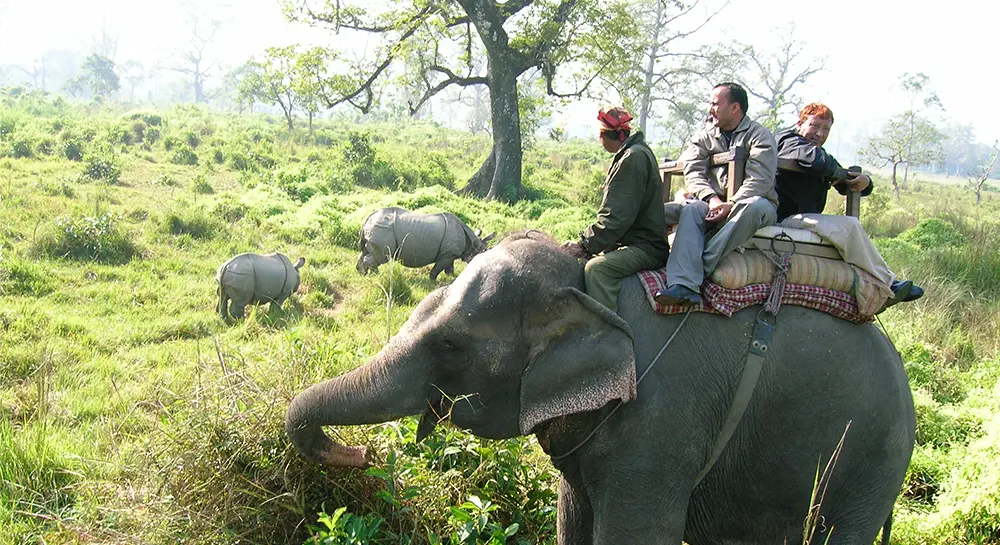
Monsoon ambiance is nothing but beautiful, and that is evidenced by misty mornings, the sparkles of raindrops on a leaf, and the feeling of freshness that you have after a downpour. Rain showers can quickly change the outcome of safaris, but they can also add special scenery during monsoons, so visitors should be flexible.
Wildlife Sightings: Chitwan Jungle Safari in July
In July, thick forests, wet grasslands, and heavy rains can limit wildlife sightings during a Chitwan jungle safari. Most animals hide in the event of severe rain, making them difficult to see. There might still be rhinos and elephants that are visible along riverbanks or in the open areas. However, the animals’ behaviors tend to be more unpredictable during the wet season. You can spot water birds and reptiles like gharials and crocodiles in rivers, but their visibility may diminish if the water level is high.
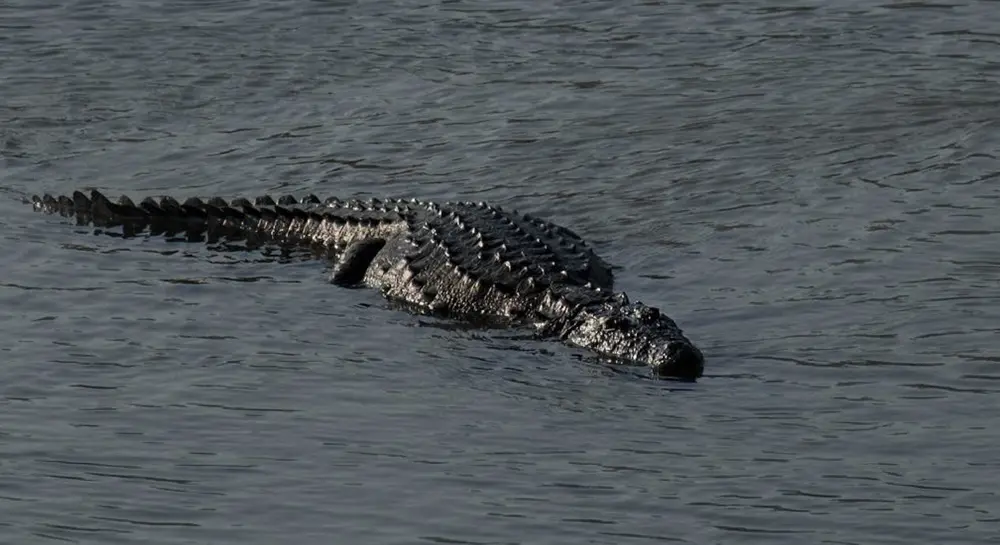
The best time to observe wildlife is early mornings or a time after one or more rainfalls, as animals tend to move to seek food or water. It is especially challenging to locate the tigers and other shy species, as the cover is thick. Monsoon, on the other hand, has its advantages: Birds become active, the amphibians thrive, and wetlands have the chance of attracting migratory varieties.
Patients and well-timed travelers can have rich experiences viewing the strong wildlife of Chitwan. Although you are likely to see fewer animals, the green jungle and active ecosystem in the month of July can give a new insight into the life of wildlife in the monsoon system.
Safari Activities: Chitwan Jungle Safari in July
The heavy rain in July and the waterlogged Safari activities at Chitwan Jungle Safari require flexibility and planning. Jeep safaris on muddy roads often restrict jeep safaris, and during high season, some park areas may close. Canoeing on the Rapti River can be organised during the dry season, but there are times when it is cancelled due to sudden rain or too much water. During jungle walks, a guide may be available to lead the way between rain showers; however, there is a significant risk of slipping in the wet jungle and encountering leeches.
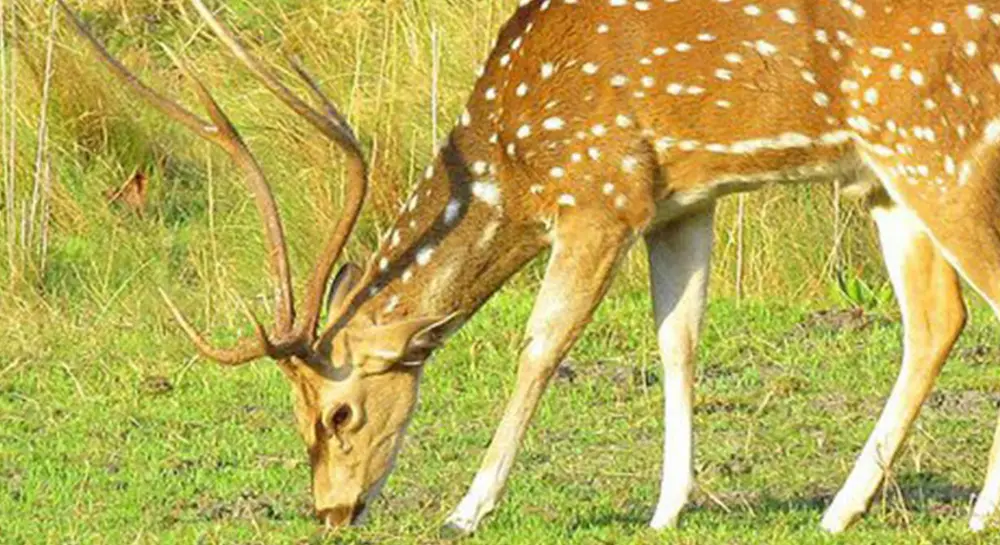
The best time to spot wildlife is during early morning safaris, when there are high chances of encountering animals as heavy rainfall takes a break; however, there may also be additional opportunities in the late afternoons when the rain subsides. Travelers with a passion for photography have at their disposal lush monsoon scenes, clouded forests, and reflective waters to take extraordinary shots of different kinds and atmospheres. July Safari in general is flexible and patient and requires precise timing but will give the visitor a very personal experience in the Chitwan transformed by the monsoon and allow a taste of the unruined beauty of the park in the wet season.
Cultural Notes: Chitwan Jungle Safari in July
A jungle safari trip to Chitwan can provide a wonderful experience of local culture in the midst of the monsoon. With fewer tourists visiting, travellers will have more one-on-one interactions with the inhabitants of their natural Tharu settlements. Monsoon rains and their impact on agriculture, particularly rice planting and irrigating rice paddies, are the focal points of life. Local cuisine, storytelling, and seasonal ritual observation are among the cultural experiences that can occur without the usual influx of tourists.
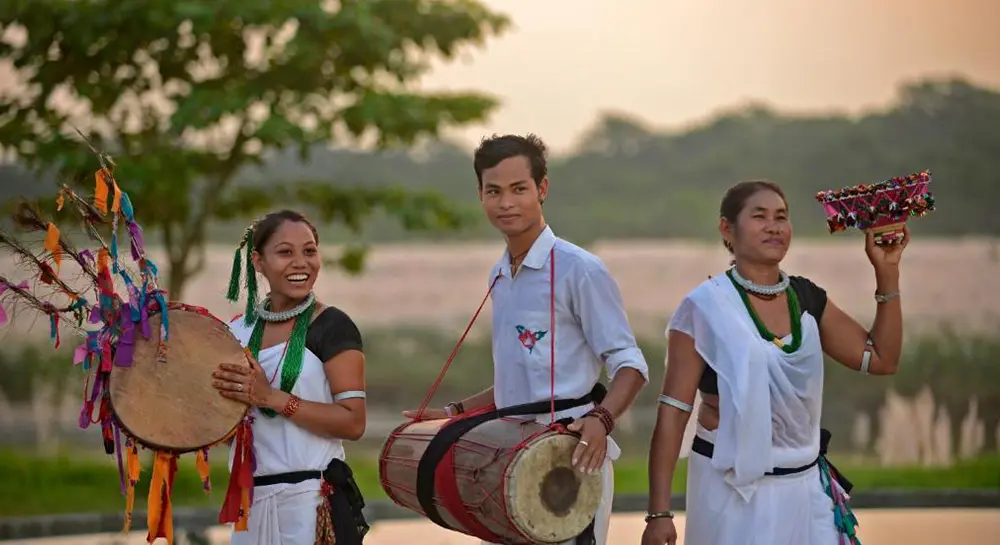
Villages are calm and tranquil, and the rain provides excellent background tones for everyday life. Tourists can observe the customs of the monsoon-related rites and rituals, pointing to very little distance between societies and the environment. The mix of quiet cultural experiences and the rainy, natural surroundings gives travelers a real taste of this special place that they can’t get during the dry season.
Travel Tips: Chitwan Jungle Safari in July
- Protection Against Rain: Do take non-waterproof jackets and waterproof covers for accessories and gadgets.
- Insect/Leech Safety: Wear long clothing, apply insect repellent, and inspect yourself after jungle walks.
- Waterproof boots or shoes: They are simply essential in mud and slippery path hikes.
- Flexible Planning: Be ready to deal with abrupt rainstorms that can delay safari proceedings.
- Water & Snacks: Warm air and physical activity imply a necessity to drink water regularly and, in between, to consume light snacks.
- Photo preparation: Bring camera gear to shield it from monsoons while capturing images of landscapes.
Conclusion: Chitwan Jungle Safari in July
A Chitwan Jungle Safari in July offers a refreshing and uniquely rewarding experience for those who seek adventure beyond the ordinary. While it is the monsoon season, the rains breathe new life into the forest, transforming Chitwan into a lush green paradise brimming with vibrant energy. The rivers swell, the grasslands turn emerald, and the forests echo with the calls of birds and wildlife, creating an atmosphere that feels raw and untouched.
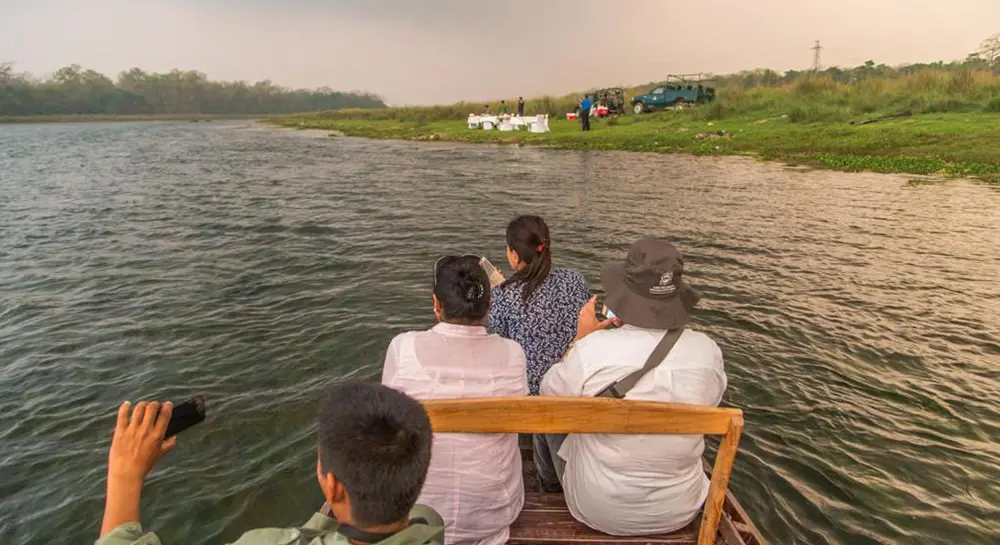
Fewer tourists visit during this time, making it perfect for travellers who wish to explore in peace and connect deeply with nature. Canoe rides on rain-fed rivers, jungle walks amidst fresh greenery, and encounters with wildlife in their natural rhythm make July safaris truly enchanting. For those who embrace spontaneity, love serene landscapes, and seek an authentic connection with the jungle, July is an inspiring month to experience the wild heart of Chitwan.

